Shedding Pounds Rapidly: Why Do You Lose Weight So Fast on Carnivore Diet?

Curious about the rapid weight loss associated with the carnivore diet? The secret lies in its restriction to high satiety foods and near-total elimination of carbs that enforces a calorie deficit, often without trying. This introduction to the carnivore diet will illuminate the profound effects of its high-protein approach on your metabolism and body composition, explaining “why do you lose weight so fast on carnivore diet” and setting you up for the detailed insights to follow.
Key Takeaways
- The carnivore diet promotes weight loss due to high protein and fat intake, which increases satiety and metabolic rate, and eliminates carbs, causing the body to shed water weight and enter a fat-burning state called ketosis.
- Eliminating food groups like sugars, processed foods, and carbs cuts calorie intake and reduces dietary variety, leading to decreased snacking and mindless eating which contributes to weight loss.
- While effective for weight loss, the carnivore diet may require adjustments to prevent plateaus, such as balancing fat and protein intake, staying hydrated, incorporating exercise, and potentially using intermittent fasting.
The Mechanics Behind Weight Loss on a Carnivore Diet
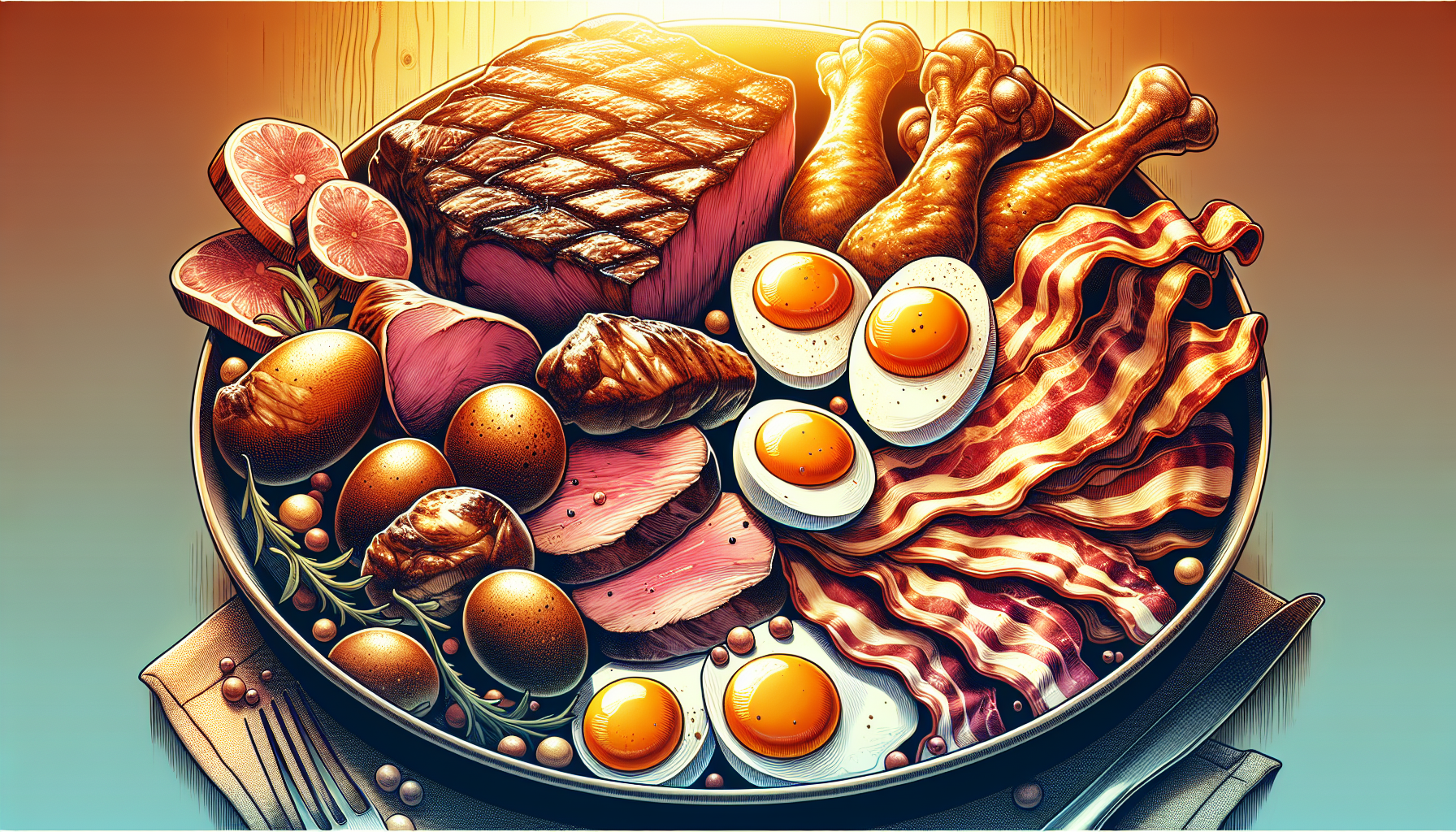
The carnivore diet’s emphasis on protein and fats, its low carbohydrate content, and the natural calorie deficit it creates all contribute to its effectiveness as a weight loss strategy. But how exactly do these mechanics lead to rapid weight loss?
Let’s delve deeper into the diet’s components to uncover the answers.
High Satiety from Protein and Fats
Have you ever noticed that you feel fuller longer after a meat-heavy meal? That’s because protein and fats, the cornerstone of the carnivore diet, contribute significantly to satiety. Hormones like leptin and cholecystokinin signal fullness to the brain when you consume protein-rich foods.
Furthermore, meals abundant in proteins and fats provide a steady energy supply, avoiding the energy crashes that promote overeating. This perfect combination of protein and fats not only keeps you feeling satisfied but also leads to a higher metabolic rate as more energy is required to digest protein.
Carbohydrate Elimination and Water Weight
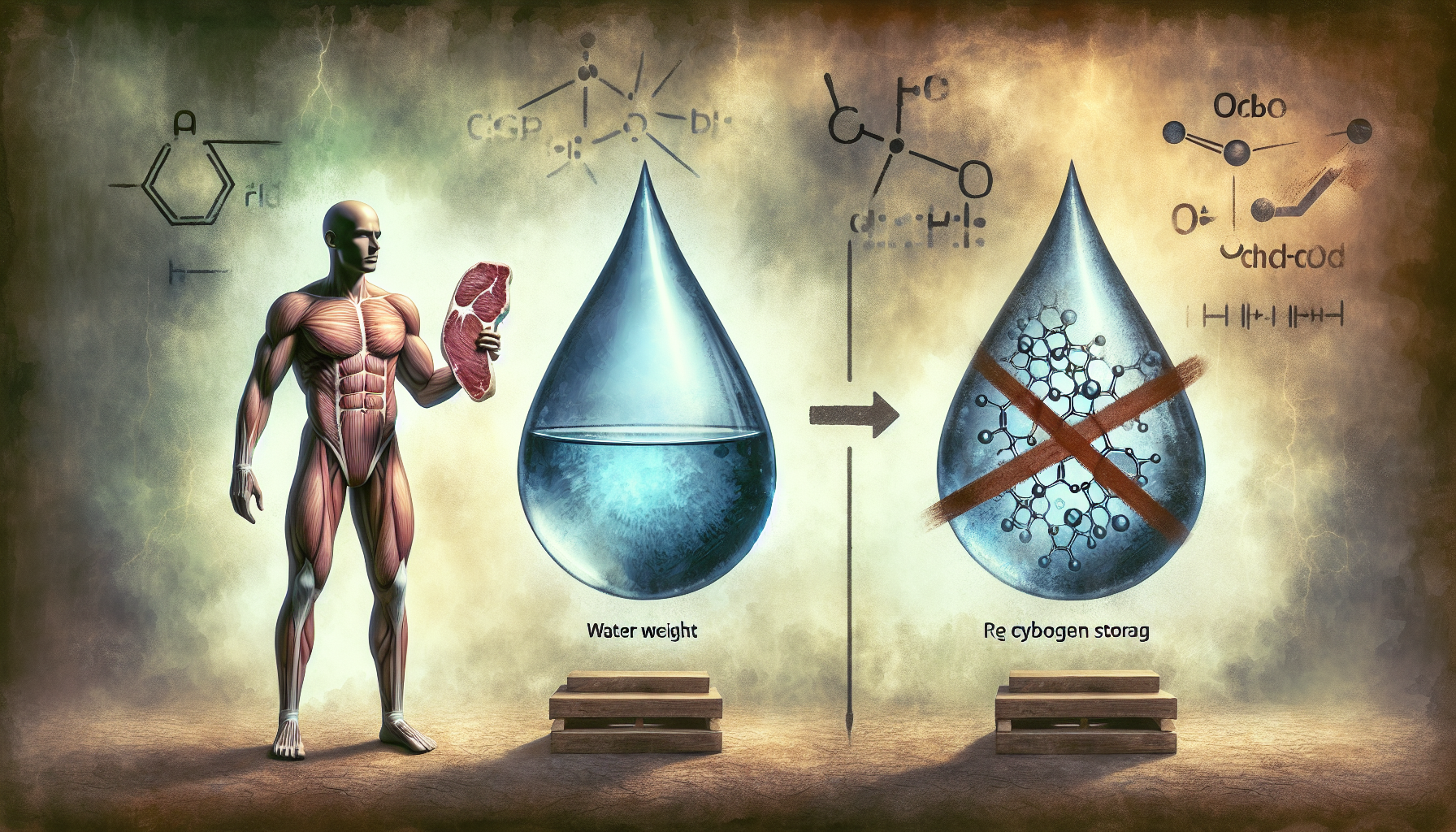
When you cut carbs from your diet, something miraculous happens - your body starts shedding stored water. Why? Carbohydrates in the body retain water, so when you don’t eat carbs, they’re eliminated, and you experience a rapid loss of water weight.
Furthermore, the essential electrolytes in animal fats aid in water retention and maintain proper fluid balance, while protein supports vital organ functions related to managing water weight and hydration. These components are part of the essential nutrients needed for overall health.
Calorie Deficit by Default
Here’s the kicker - the carnivore diet naturally leads to a calorie deficit. That’s right - without even trying, you’re likely to consume fewer calories on this diet due to the filling nature of meat and the limited food variety.
This simple fact makes the carnivore diet a compelling option for those seeking to lose weight without the hassle of meticulous calorie counting.
Transitioning to Fat Burning Mode
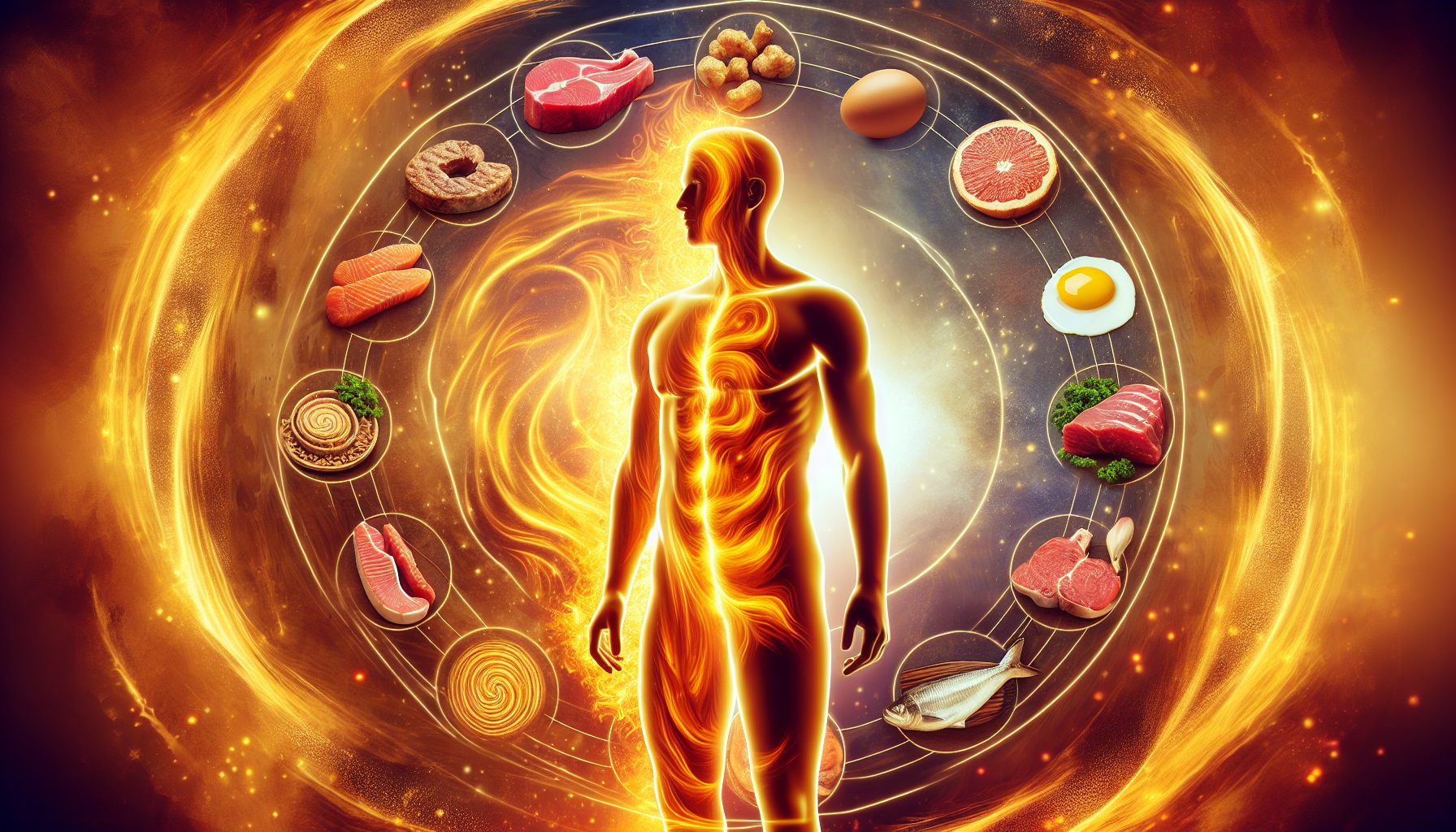
Now that we’ve explored the key elements of the carnivore diet let’s look at the metabolic shift that occurs when following this diet. The body switches to a fat-burning mode, a state known as ketosis, thanks to the absence of carbohydrates. This state, coupled with the process of gluconeogenesis, can lead to greater stability in blood sugar levels and a reduction in hunger, further aiding in weight loss.
Let’s break down these processes in the subsequent subsections.
Understanding Ketosis
The carnivore diet, being a low carb diet, leads the body into a metabolic state called ketosis, which is a key aspect of the keto diet. In this state, the body primarily uses fat as a fuel source, contributing to rapid fat metabolism and subsequent weight loss.
This shift to burning fat for energy instead of carbohydrates is what makes the carnivore diet a powerful tool for weight loss.
The Role of Gluconeogenesis
When carbohydrates are eliminated from the diet, your body needs a way to regulate blood sugar levels. Enter gluconeogenesis. This crucial process ensures stable and continuous blood sugar levels, even when you’re not consuming carbohydrates.
By understanding these metabolic shifts, you can better appreciate how the carnivore diet promotes fat burning and weight loss.
The Impact of Removing Food Groups on Weight Loss
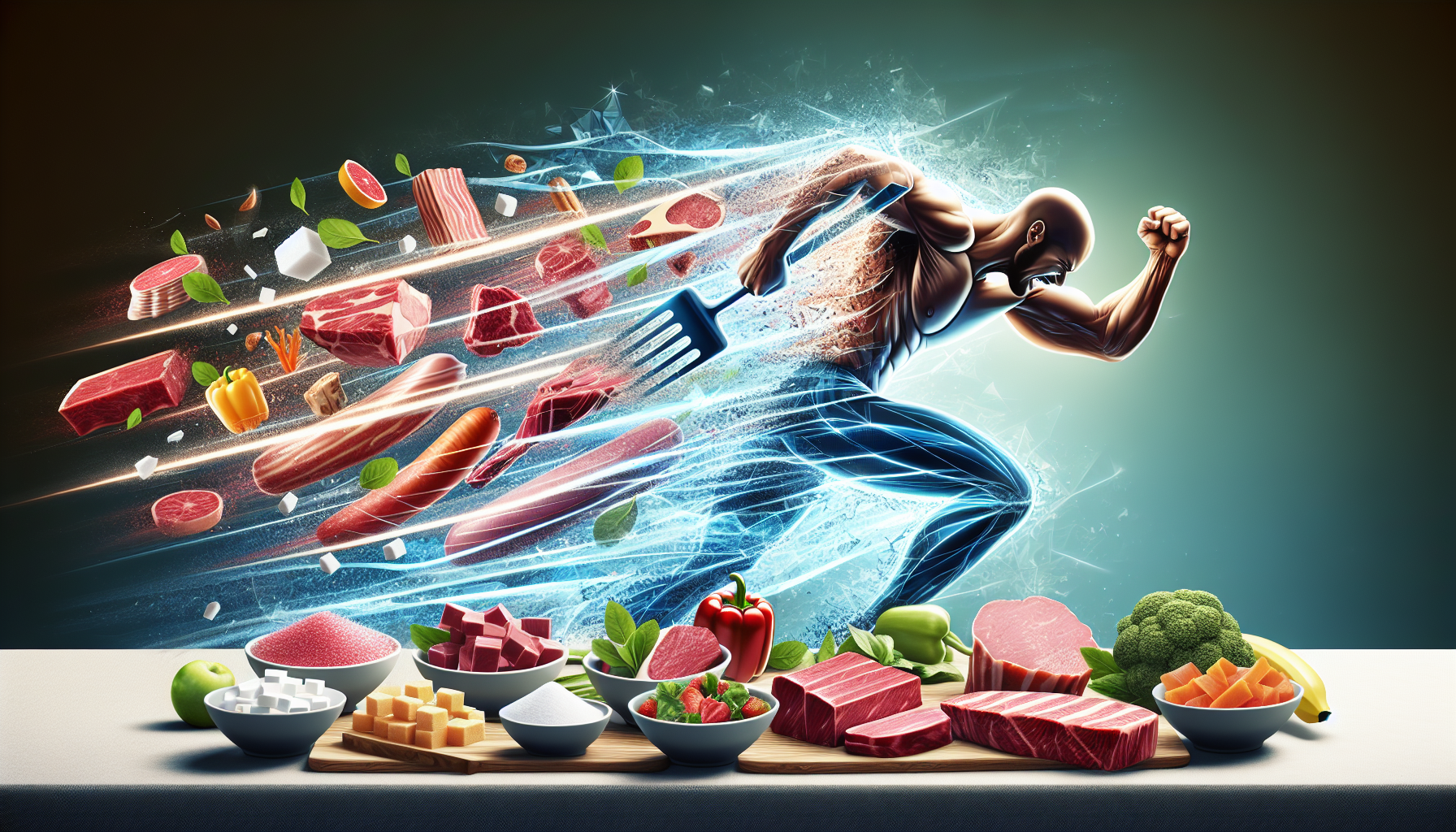
The carnivore diet eliminates various food groups from your diet, including:
- plant-based foods
- fruits
- vegetables
- grains
- legumes
- nuts
- seeds
- all forms of added sugars
This elimination of various food groups can lead to weight loss due to decreased calorie intake and reduced dietary variety.
But how exactly does this work? And how can it be sustained in the long term? Let’s delve into these questions in the following subsections.
No More Added Sugars and Processed Foods
Added sugars and processed foods contribute to increased calorie consumption and can promote overeating. By removing these from your diet and focusing on healthy foods, you can significantly reduce your calorie intake, aid in weight loss, and decrease the likelihood of conditions like diabetes.
Plus, reducing added sugar intake can result in decreased sugar cravings, leading to less frequent snacking and mindless eating - another win for weight loss!
Reduced Snacking and Mindless Eating
When you’re full and satisfied, the urge to snack lessens significantly. The carnivore diet, with its high protein and fat content, helps reduce hunger signals, leading to less frequent eating. Plus, paying attention to your body’s hunger signals and resisting the urge to snack when unnecessary can contribute to weight loss success.
Adjustments in Body Composition and Metabolism
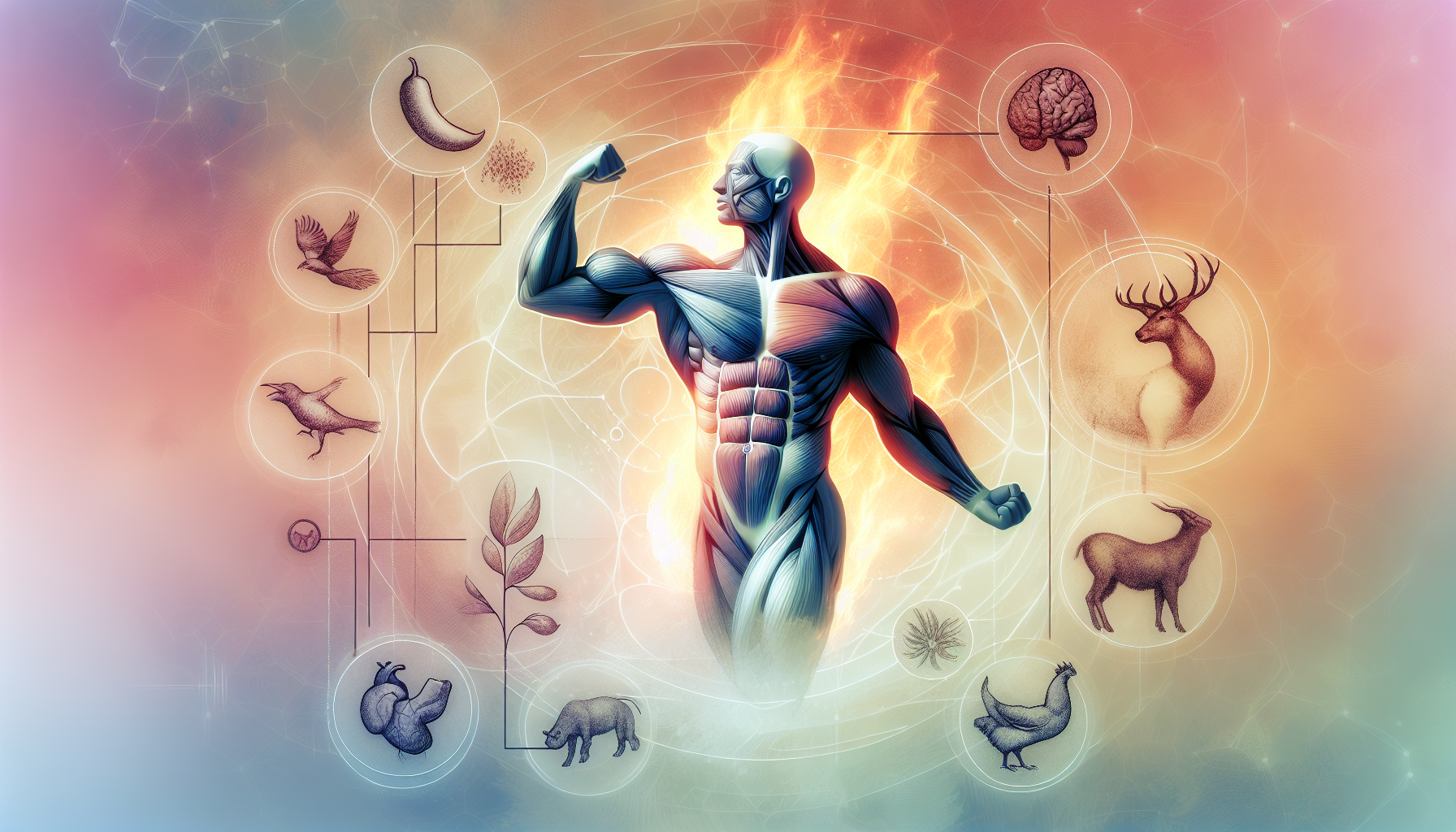
The carnivore diet brings about significant adjustments in body composition and metabolism. This diet aligns with certain evolutionary aspects of human nutrition, suggesting a historical adaptation to high protein and fat consumption. These adaptations can enhance metabolism, transforming the body into an efficient calorie-burning machine, even during rest. Some benefits of the carnivore diet include:
- Increased fat loss
- Improved muscle mass and strength
- Reduced inflammation
- Stable blood sugar levels
- Enhanced mental clarity and focus
By following the carnivore diet, you can experience these health benefits, leading to positive changes in your body and overall health.
But that’s not all. The high protein content of the carnivore diet also provides a framework suitable for muscle growth.
Muscle Maintenance and Growth
The carnivore diet’s high protein intake fuels the process of muscle protein synthesis, which is key for athletes seeking muscle mass and strength gains. Protein is crucial for muscle repair and growth, providing all essential amino acids needed for effective muscle synthesis.
This increase in muscle mass naturally raises the resting metabolic rate, contributing to higher caloric burn even at rest.
Metabolic Advantages of a High-Protein Diet
The high protein content of the carnivore diet offers significant metabolic advantages. Protein-rich diets can significantly increase metabolism and calorie burning, with protein having a higher thermic effect than fats or carbohydrates. This thermic effect means that more energy is required to digest protein, leading to higher calorie burning.
By reducing fat intake and replacing it with more protein, you can support weight loss by increasing this thermic effect and enhancing satiety.
Potential Pitfalls and How to Avoid Them
While the carnivore diet offers many benefits, like any other diet, it comes with potential pitfalls. Some may struggle with changes in bowel movements and the ‘meat sweats’ as the body adjusts to increased meat consumption. However, with some strategic adjustments, these pitfalls can be easily managed.
Let’s explore how to balance fat and protein intake, stay hydrated, and incorporate exercise in the following subsections.
Balancing Fat and Protein Intake
The carnivore diet recommends consuming 1.5 to 2 times more fat in grams than protein. This balance ensures that you get the essential saturated and unsaturated fats, including omega-3 fatty acids, which are crucial for muscle growth, hormone production, and reduced inflammation.
Incorporating diverse cuts of meat, such as organ meats and connective tissues, ensures a balanced intake of fat and protein when you eat meat.
Importance of Adequate Hydration
Staying hydrated is crucial on the carnivore diet. As animal products contain less water than fruits and vegetables, you may need to be more diligent about your hydration. Adequate hydration is critical for digestion and maintaining energy levels, making it crucial to strategically manage fluid intake.
Plus, proper hydration facilitates weight loss by helping with appetite suppression and enhancing lipolysis, the process through which body fat is broken down in the body.
Incorporating Movement and Exercise
Adding physical activity to the carnivore diet enhances weight loss and supports muscle mass increase. Functional movements that involve the whole body are recommended to align with weight loss and muscle building goals. Exercises that focus on flexibility, stability, and strength can improve overall health and are beneficial when paired with the carnivore diet.
Plus, incorporating weightlifting to build muscle mass can stimulate calorie burn and overcome weight loss plateaus.
Navigating Plateaus and Continuing Progress
Even when you’re doing everything right, you might hit a weight loss plateau on the carnivore diet. But don’t worry, this is common and can be overcome with some tweaks to your diet and exercise plan.
Let’s explore some strategies to navigate these plateaus and continue your progress.
Strategic Caloric Adjustments
One strategy to overcome a weight loss plateau is to adjust your daily calorie intake. Cutting additional daily calories can help you continue your weight loss. However, it’s important to maintain a caloric intake above 1,200 calories to avoid constant hunger and the increased risk of overeating that can derail your weight loss efforts.
Intermittent Fasting as a Tool
Introducing intermittent fasting to your carnivore diet can also be an effective tool for weight loss. This approach involves:
- Eating only within a designated window
- Supporting weight loss by allowing the body to fully utilize the calories consumed each day
- Helping avoid mindless snacking.
Listening to Your Body
Perhaps the most important strategy for success on the carnivore diet is listening to your body. Recognizing when you feel full helps to avoid overeating, while paying attention to other signals like increased energy levels, absence of cravings, and changes in bowel movements can indicate when dietary adjustments are needed.
Remember, rapid weight loss can sometimes lead to health issues, such as weight gain, so assessing your overall well-being and body weight is as important as monitoring your losing weight progress.
Summary
In conclusion, the carnivore diet’s unique mechanics - high protein and fat intake, carbohydrate elimination, and natural calorie deficit - promote rapid weight loss. By understanding these mechanisms and making strategic adjustments, you can maximize the diet’s benefits and achieve your weight loss goals. So, are you ready to embark on the carnivore diet journey and experience its transformative effects?
Frequently Asked Questions
Why does the carnivore diet lead to rapid weight loss?
The carnivore diet leads to rapid weight loss due to its high protein and fat content, elimination of carbohydrates, and natural calorie deficit, which increase satiety, reduce calorie consumption, and promote fat burning. So, it can help you shed those extra pounds quickly.
How does the carnivore diet promote a metabolic shift to fat burning?
By eliminating carbohydrates, the carnivore diet induces a state of ketosis, where the body starts using fat as its main energy source, leading to rapid weight loss. Try it out and see how it works for you!
How does the carnivore diet reduce snacking and mindless eating?
The carnivore diet reduces snacking and mindless eating by increasing satiety with its high protein and fat content, which reduces hunger signals. So, you'll find yourself reaching for snacks less often.
What are the potential pitfalls of the carnivore diet and how can they be avoided?
The potential pitfalls of the carnivore diet include changes in bowel movements, 'meat sweats', and possible nutrient deficiencies, which can be managed by balancing fat and protein intake, staying hydrated, and incorporating exercise. Be mindful of these factors for a balanced and healthy approach to the carnivore diet.
How can you overcome a weight loss plateau on the carnivore diet?
To overcome a weight loss plateau on the carnivore diet, adjust your calorie intake, try intermittent fasting, and pay attention to your body's signals for necessary dietary adjustments. Keep experimenting and stay patient to see results.
